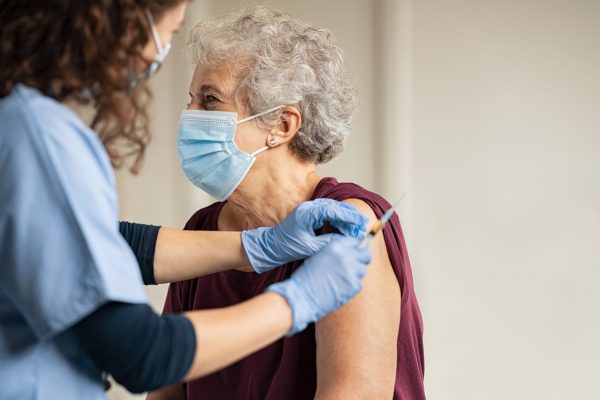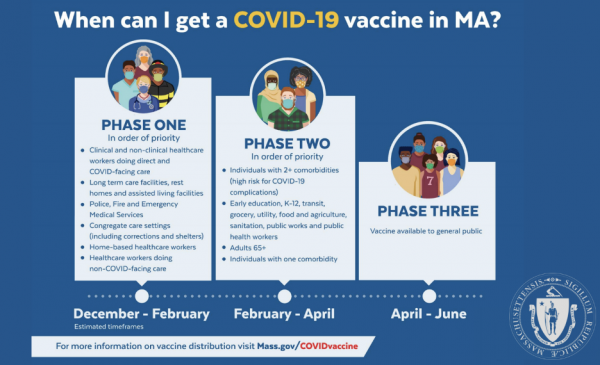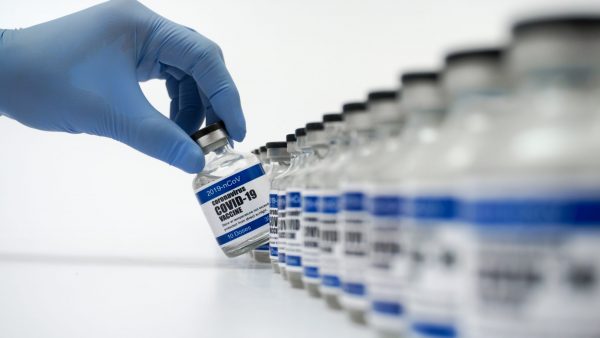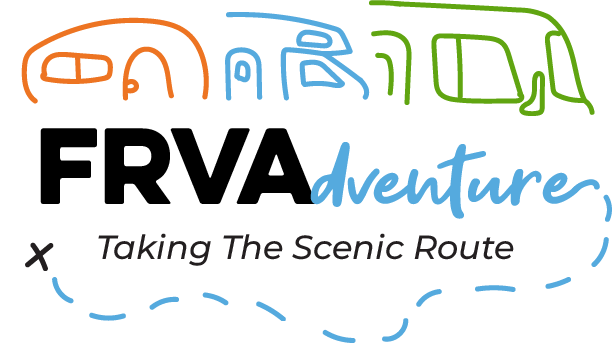Please note: This information is for informational purposes only in order to help our members who may be struggling to find vaccine information specific to RVers. FMCA does not claim to to be an expert source on COVID-19 or vaccinations, and you should always consult medical professionals such as the Center for Disease Control or your personal physician as well.
Now that nearly a year has passed since COVID-19 lockdowns swept the world and shut everything down for months, things are finally starting to look up. Vaccines are being distributed, hope is being restored, and across the globe, the beginning of the end of the coronavirus pandemic has arrived.
What does this mean for RVers? Travel was greatly restricted in 2020 in an effort to stop the spread of COVID-19 into communities that hadn’t been affected yet. States began issuing 14-day quarantine orders for incoming travelers, and international borders remained closed for months. With the spring travel season approaching, we want to make sure you have all the information you need regarding COVID-19 vaccines and how to safely and quickly get yours.

What is the order in which people will receive the vaccine?
The Centers for Disease Control and Prevention (CDC) worked with state, tribal, territorial, and local jurisdictions on the development of COVID-19 vaccination plans for their respective areas. CDC released a playbook on September 16, 2020, to provide specific information to consider during vaccination plan development. The playbook was updated on October 30, 2020.
While each state’s plans may vary in timeline and specific subgroups, this example from the state of Massachusetts provides a general overview of the various phases and groups in which the vaccine will be distributed.

Can I receive the vaccine in a state where I am not a resident?
RVers are unique in the fact that they often spend long periods of time in states other than their home state. Fortunately, the people distributing the vaccines understand this, and we are not aware of any states that have indicated it will not be possible to receive a vaccine there unless you are a permanent resident . Arizona, California, and Florida, which are popular RV states during the winter, are among the states whose health officials have specifically noted that they will make the vaccine available to nonresidents.
How do I get vaccinated?
Since each state is handling vaccine distribution differently, the best and most accurate source of information is the . A dropdown menu allows you to select the specific state you’d like more information about. These vaccination plans are being updated daily, so even if you read something online last week, we recommend you double check on the day you plan to receive your vaccine to ensure the requirements have not changed.
What do I need to know about the second dose?

According to the FDA, both vaccines that are being distributed currently in the United States require a second dose to be administered in order to be fully effective. For the Moderna vaccine, it is recommended that you receive doses 4 weeks apart. For the Pfizer-BioNtech vaccine, it is recommended to receive them 3 weeks apart.
Another noteworthy point is that medical experts are recommending you receive both doses from the same location. You may be able to schedule your second dose appointment when you receive your first dose. You’ll also receive a vaccination card to keep with you in case you forget the date or which vaccine you received.
What is the cost of the vaccine?
As part of Operation Warp Speed, vaccine doses purchased with U.S. taxpayer dollars will be given to the American people at no cost. However, vaccination providers will be able to charge an administration fee for giving the shot to someone. Vaccine providers can get this fee reimbursed by the patient’s public or private insurance company or, for uninsured patients, by the Health Resources and Services Administration’s Provider Relief Fund.
What is V-Safe and do I need to use it?
V-safe is a smartphone-based tool that uses text messaging and web surveys to provide personalized health check-ins after you receive a COVID-19 vaccination. Through V-safe, you can quickly tell CDC if you have any side effects after getting the COVID-19 vaccine. Depending on your answers, someone from CDC may call to check on you and obtain more information. And V-safe will remind you to get your second COVID-19 vaccine dose if you need one.
Your participation in CDC’s V–safe makes a difference — it helps keep COVID-19 vaccines safe.
Do you have any other tips or information regarding COVID-19 vaccines that would be useful for RVers? Let us know in the comments below and we will keep updating this page.


